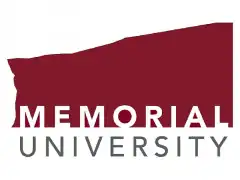Master of Applied Ocean Technology - Ocean Mapping
- 2 years
- Duration
- 15,600 CAD
- Price
- Rolling admission
- Start
- Rolling admission
- Deadline
- Master
- Degree
- Campus
- Format
- St. John's / Canada
- Location
Program description
The new Master of Applied Ocean Technology (Ocean Mapping) degree focuses on improving an ocean mapper's technological capability to handle ocean data and provide real-world solutions for our oceans' sustainability.
The master’s program is for students looking to attain higher level of credential with opportunities to gain extensive knowledge and skills.
Program structure
The program focuses on the development of the required level of technological literacy and competency to be an effective ocean mapper through advanced and applied technical training and applied research.
Core courses are designed to develop a thorough understanding of core values and competencies as well as proficiencies in hydrographic best practices, geospatial data analysis, image interpretation and application development.
A field immersion component resonates with the practical application of the “plan-to-chart” solution through real-world, industrial situations that offer students the medium of linking learning with doing.
Price
- Tuition — 15,600 CAD
OTHER FEES (REQUIRED) amounts listed are for two semesters
- Student Services Fee — 150 CAD
- Students' Union — 100 CAD
- Recreation Fee — 220 CAD
- Health Insurance — 560 CAD
Requirements for applicants
To be considered for admission to the program, an applicant will normally possess a relevant second class or better undergraduate degree in the areas of science, technology, engineering or equivalent, both in achievement and depth of study, from an institution recognized by the Senate. Any other applicant may be considered for admission provided that:
- The applicant has completed a second-class or equivalent undergraduate degree from an institution recognized by the Senate;
- The applicant demonstrates a satisfactory level of knowledge of math and science through undergraduate or graduate course.
- The applicant demonstrates in a statement of interest, a commitment and passion for ocean mapping and related technology through combined efforts of prior technical training in a relevant ocean technology field and employment or experience in field schools, research programs, the ocean technology industry, regulatory agencies or government departments, non-governmental organizations, consulting activities, or other relevant activities.
Completion of additional course work in math, science, and/or related technology may be required.
Applicants who did not complete a baccalaureate or post-graduate degree at a recognized university where English is the primary language of instruction must normally complete either the:
- Test of English as a Foreign Language (TOEFL) and achieve a paper-based score of 580 (or higher), computer-based score of 237 (or higher), or internet-based score of 92-93 (or higher); or
- International English Language Testing System (IELTS) and achieve a score of 7 (or higher).
Please note that other equivalent tests acceptable to Memorial University’s School of Graduate Studies will also be considered.
About the university

Memorial University has a unique responsibility to the people of Newfoundland and Labrador as the only university in the province. Memorial University was founded as a tribute to the Newfoundlanders who gave their lives in military duty during globe War I and later conflicts. We take inspiration from their efforts to create a better future for our province, our country, and the globe.
Over 115 different nations are represented among Memorial University's 19000+ students. Programs range from the traditional to the cutting edge, and can be found at any of Memorial's five locations or online. Memorial University's worldwide network of nearly 100,000 successful alums enhances the institution's capacity and reputation for leadership in research, teaching, and public engagement. Learn more about Memorial University in this quick read.
Vision, Mission
- Vision — Memorial University will rise to prominence as one of Canada's and the world's top public institutions of higher learning, and it will honor its commitment to serving the people of Newfoundland and Labrador.
- Mission — When it comes to education, research, scholarship, creative activity, service, and public engagement, Memorial University is committed to being at the forefront of innovation and excellence. International students and scholars are welcomed and supported at Memorial, and the institution's contributions of knowledge and experience are valued on all levels of society.
Campuses
More than 19,400 students and 3,800 teachers and staff from more than 115 countries study, teach, conduct research, create, and participate in activities at our campuses and other locations. You can attend classes at one of Memorial University's several campuses in Newfoundland and Labrador or anywhere in the world; we also offer 475 courses online.
- St. John's campus
- Grenfell Campus
- Marine Institute
- Harlow Campus
- Signal Hill Campus
- Labrador Campus
Read more about Memorial University, Newfoundland and Labrador, Canada





